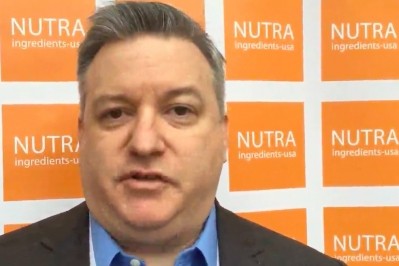‘Probiotics are on the verge of exploding in China’: Recent conference shows vast potential of market in its infancy

At the recent China Health Industry Technology & China Microecological Health Conference, George Paraskevakos, executive director of the International Probiotics Association (IPA) and Loren Israelsen, president of the United Natural Products Alliance (UNPA) presented to 1,500 regulators and physicians.
The purpose of the conference was to better understand the potential economic benefits of probiotics by exploring consumption habits, healthcare needs and hospital visits for millions of citizens, Paraskevakos told NutraIngredients-USA.
One of the goals was for select participants from the Association of Traditional Chinese Medicine and The China Association of Health Promotion and Education to produce a white paper on the potential benefits of probiotics for possible disease prevention and health care reductions.
Probiotics in China – now and in the future
While the majority of probiotics are consumed in the form of yogurt and fermented products (from soy to vegetables and even eggs), the Chinese people are increasingly turning towards supplements as digestive wellness becomes more significant. “The drivers for the change are increased incomes, migration from rural to urban areas as well as an innate preference to emulate practices such as the high-supplement use in the United States,” said Paraskevakos.
UNPA’s Israelsen said: “It is crystal clear that probiotics are on the verge of exploding in China. The potential market is vast. Currently, consumer education is super low and domestic production is inconsistent.
“The need for standards, quality, external support and advice into the China market is wide open, and I think welcome,” he added.
Paraskevakos noted that, while there are some players that do export, there are many local manufacturers of bacteria who only play in the local market, and some smaller local players are working on standards to meet global demand. On the other hand, international players like Danone, Lallemand, DuPont, and Chr Hansen have local offices in China.
Making the economic case
After introducing IPA and its mission, Paraskevakos said he presented evidence that improving health makes sense economically. For example, costs including doctor visits, medications, and sick leave can be reduced depending on the society, health care system and family.
Data from French and Canadian populations illustrate the potentially significant cost-savings associated with probiotic consumption. Data published in 2015 indicated potential cost savings in France of €38 million (US$40 million). (Lenoir-Wijnkoop et al. PLoS ONE, 10(4):e0122765. doi: 10.1371/journal.pone.0122765), while data published in 2016 using the same microsimulation model for Canada indicated that using probiotics to prevent and reduce the severity and duration of respiratory infections could reduce healthcare costs in Canada by as much as Can$100 million (Lenoir-Wijnkoop et al. PLoS ONE, 11(11): e0166232, doi: 10.1371/journal.pone.0166232).
There is also data to support specific cost-savings in different disease targets including colic (for example: JAMA Pediatr. 2014, Vol. 168, pp. 228-33), allergies (for example: Curr Med Res Opin. 2017 3:1-10), and both antibiotic-associated and infectious diarrhea (for example: Lenoir-Wijnkoop et al. 2014, Front. Pharmacol. 5:13. doi: 10.3389/fphar.2014.00013).
Paraskevakos also provided an overview of the probiotic market including foods and supplement usage per global regions.
“I think the Chinese really value external experts in this field, and it’s just the beginning,” he said.













